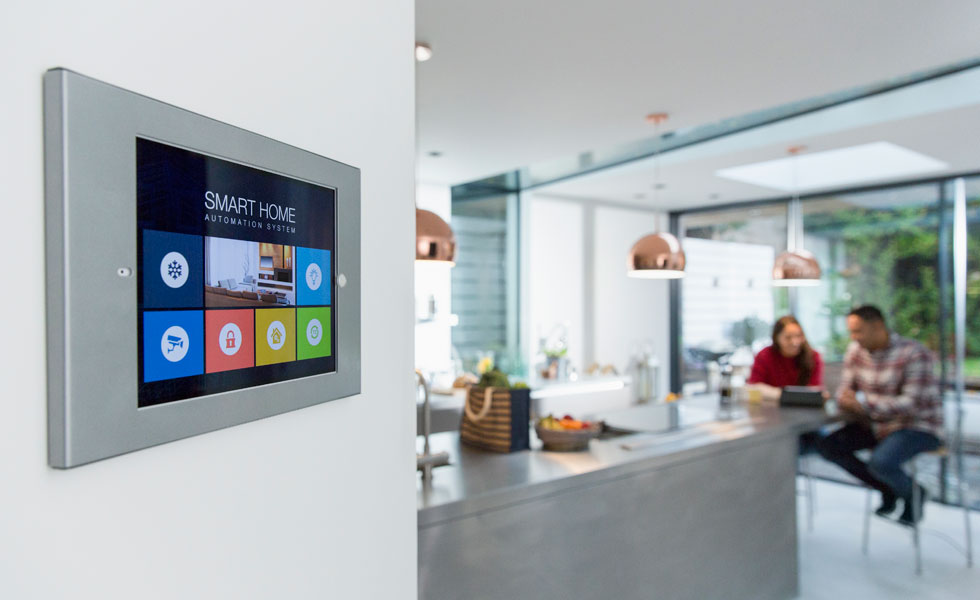In the quest for a more sustainable future, how can smart homes support sustainability goals? As homeowners and businesses strive for eco-friendly solutions, the integration of smart technology in homes presents a compelling answer. This article delves into the ways in which smart homes contribute to sustainability, offering not only environmental benefits but also economic and social advantages.

The Eco-Friendly Evolution of Smart Homes
Smart homes are transforming the way we live, and at the core of this transformation is their ability to enhance sustainability. By integrating Internet of Things (IoT) devices, these homes optimize energy consumption, reduce waste, and support renewable energy sources. For instance, smart thermostats like Nest or Ecobee can learn your habits and adjust heating or cooling accordingly, significantly reducing energy use.
Energy Efficiency and Cost Savings
One of the primary benefits of smart homes is their potential for energy efficiency. Devices like smart lighting systems, which can be controlled remotely, ensure that lights are only on when needed. This not only saves electricity but also cuts down on utility bills, providing financial relief for homeowners and businesses alike. Furthermore, smart appliances, such as refrigerators and washing machines, use energy more efficiently, contributing to lower overall consumption.
Reducing Carbon Footprint with Smart Technology
By reducing energy consumption, smart homes also play a critical role in minimizing carbon footprints. For example, smart grids facilitate better demand response, allowing for the integration of renewable energy sources such as solar and wind. This shift to cleaner energy sources significantly decreases greenhouse gas emissions, aligning with global sustainability goals.
For more insights on how smart homes are evolving, you can read about the next generation of smart homes.
Water Conservation and Smart Irrigation
Water scarcity is a pressing global issue, and smart homes offer innovative solutions to tackle this challenge. Smart irrigation systems, for instance, use weather data and soil moisture sensors to optimize watering schedules. This ensures that gardens and lawns receive the right amount of water without wastage, conserving a precious resource and supporting environmental sustainability.
Smart Homes and Waste Reduction
Another aspect where smart homes contribute to sustainability is waste reduction. Smart bins equipped with sensors can monitor waste levels and optimize collection schedules, reducing unnecessary trips and fuel consumption. Additionally, smart refrigerators can track food expiration dates, helping households minimize food waste by sending reminders to use products before they spoil.
Enhancing Home Security and Safety
Beyond environmental benefits, smart homes enhance security and safety, which are integral to sustainable living. Smart security systems, including cameras and motion detectors, provide real-time alerts and remote monitoring capabilities. This not only deters potential intruders but also gives homeowners peace of mind, knowing their homes are secure.
Learn more about voice-controlled homes of the future and how they integrate security features.
The Social Impact of Smart Homes
Smart homes are not just about technological advancements; they also have a significant social impact. By promoting energy efficiency and reducing environmental impact, smart homes contribute to healthier communities and a better quality of life. Moreover, they empower individuals to make informed decisions about their resource usage, fostering a culture of sustainability.
For those interested in setting up their smart home ecosystem, check out this guide on smart home device setup.

Conclusion: The Future of Sustainable Living
As we look to the future, the role of smart homes in supporting sustainability goals is clear. By leveraging technology to optimize resource use, reduce waste, and promote renewable energy, smart homes are at the forefront of the sustainability revolution. Homeowners and businesses alike have a unique opportunity to contribute to a greener planet through smart home adoption.
FAQs
How do smart homes reduce energy consumption? Smart homes reduce energy consumption by using IoT devices like smart thermostats and lighting systems that optimize energy use based on user habits and preferences.
Can smart homes help in water conservation? Yes, smart homes can help conserve water through smart irrigation systems that adjust watering schedules based on weather data and soil moisture levels.
What is the social impact of smart homes? Smart homes promote healthier communities by reducing environmental impact and empowering individuals to make sustainable choices, contributing to a better quality of life.

